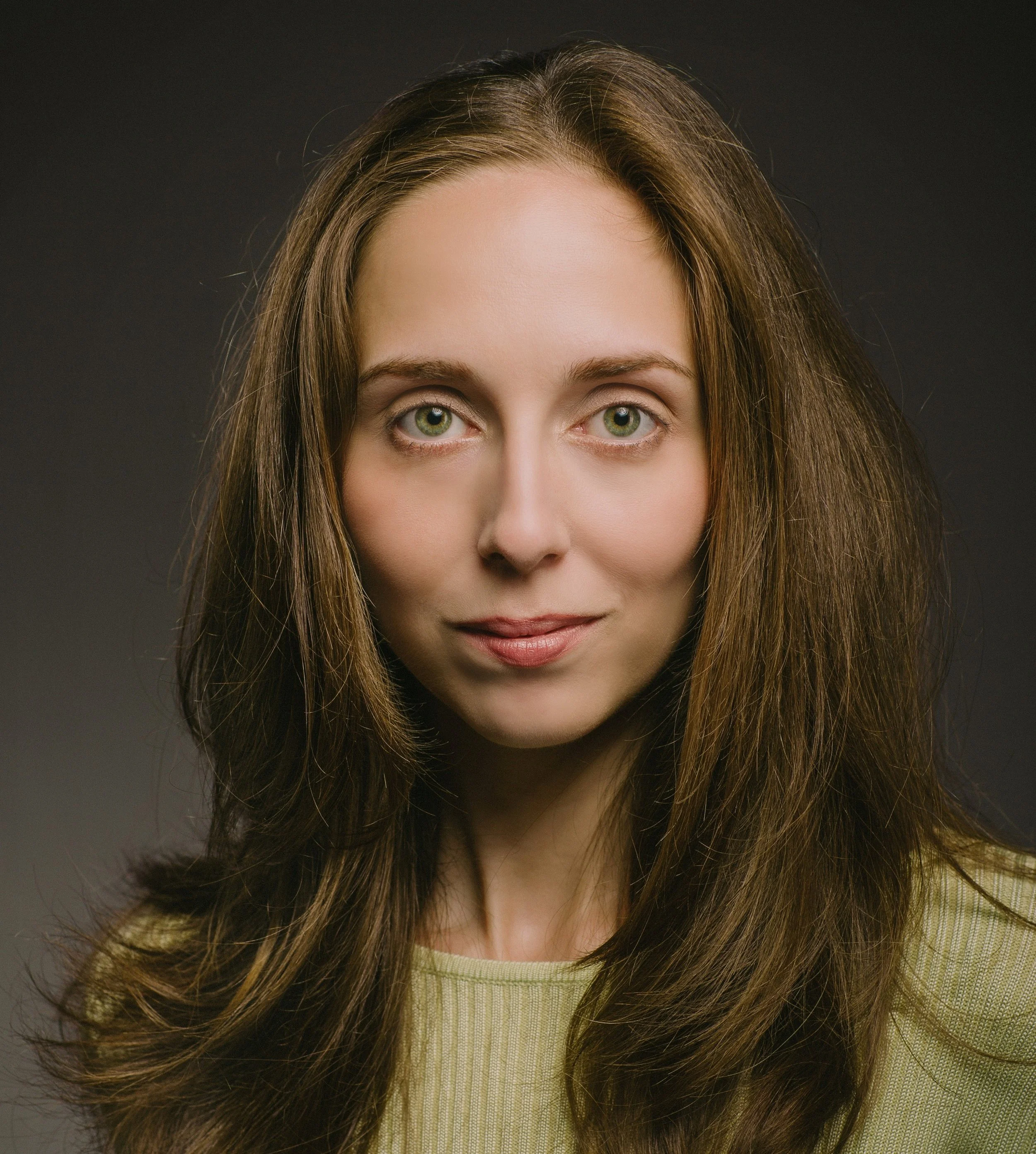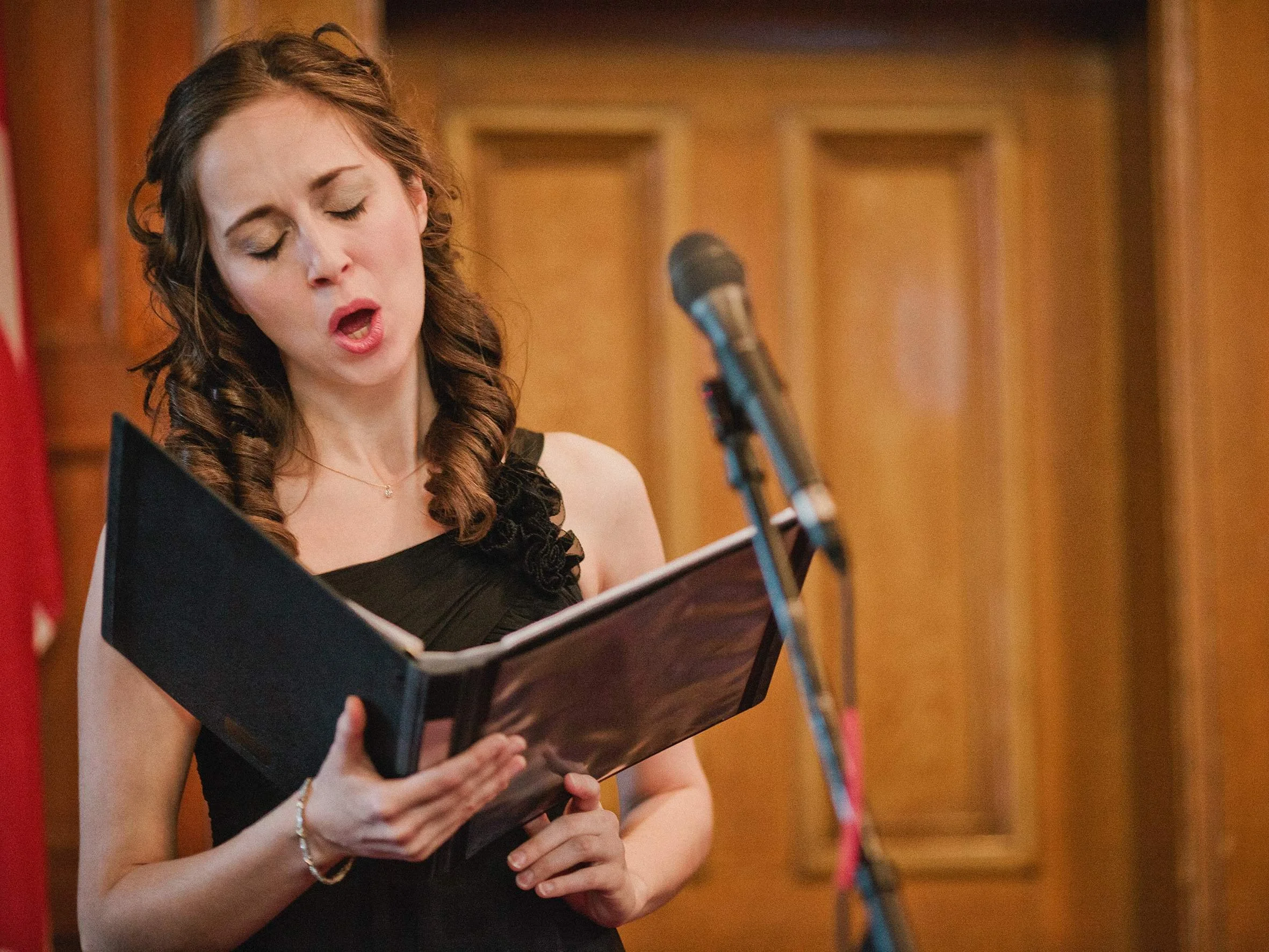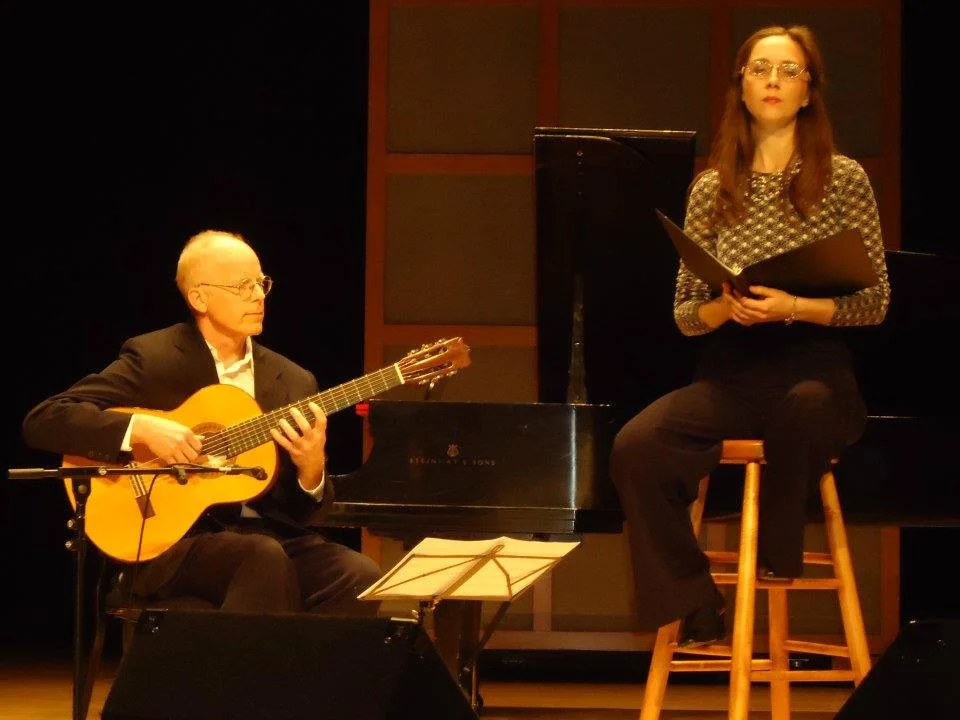Lane Changer - Michelle Simmons, straddling two lanes in her mid-40s
Michelle Simmons crossed my radar when she spoke to the Aging in Place Committee at the Co-operative Housing Federation of Toronto, where I work. She talked about the links between aging and compromised swallowing, informed by the research she does at the University Health Network. The topic is something we should all consider as we march ever closer to being aged. But my spidey senses were engaged when she explained her path took her from classical singing to a Masters in Speech Language Pathology (SLP). Lane Changer!!
When Michelle sat down with me to tell me her story, she was quick to say it’s not uncommon for singers to switch to SLP, but usually they do so to help people with issues related to voice and communication. Her interest dates back 30 years when she watched her grandfather’s esophageal cancer ravage his swallowing. My late husband Jack had compromised swallowing from cancer too, so much so he chose to die with medical assistance to avoid a choking death. No-one should take the ability to swallow for granted.
But let’s start with Michelle’s first lane as a singer. She started life in a village outside St. John’s, Newfoundland where music is a big part of life. Michelle sang in school choirs and studied piano too. When her family moved into St. John’s, she continued on with Royal Conservatory piano lessons. She suffered from the cool-deficit common when country kids move to the city. To up her social status, she dropped classical for a bit and played pop. That proved boring so she reverted to classical but added jazz. By the end of high school, her jazz piano skills were such that she was accepted to the prestigious Berklee College of Music in Boston and to York University. Both seemed too far for an 18 year old, plus US tuitions were unaffordable for the family. Simmons opted for the hometown music program at Memorial University specializing in classical voice. After her undergrad, she was accepted to do a Masters in music at the University of Toronto. A little more mature then, she was ready for the big city. That was 2002, and constituted her first physical lane change.
Upon graduation from UofT, she launched herself as a freelance singer. It’s structurally challenging to make a career based solely on performance work within Canada. It is possible, however, in Europe. Despite trips there, Michelle’s confidence prevented her from giving it a go. Toronto still seemed foreign enough to her.
Michelle considers herself very lucky to have secured a bread and butter job in the music field as an administrator at a non-profit music school at University Settlement, a community centre in downtown Toronto. Unlike the jobs other singers took to cover rent, this one understood her priority was her music career and adjusted her schedule accordingly. She worked in that position for 15 years, even during her SLP Masters. The children and parents who went through that music school are like family to her.
Simmons kept trying to get a break with her singing though. After graduating, she had permanent, part-time jobs singing in church choirs first for a decade at Bloor Street United and then Toronto’s Anglican Cathedral. As well, Michelle had contracts with VoiceBox, an organization doing semi-staged operettas, and did unpaid internships in Austria and the south of France to get experience and build contacts. Those opportunities didn’t convert into a larger solo career, but Simmons did gain valuable experience and connections and luckily the music school held her job for her during her absences.
Twelve years out of her singing Masters, she knew, as a single woman entering her mid-30s, if she was to sustain herself for the long-term, she was either going to have to get a patron or look for a new lane.
While she was flirting with an actual MD, she considered med school and even wrote the MCAT. Had she been accepted into the program at Memorial where she interviewed, she expects she would have ended up doing either family medicine or geriatrics, two areas where there are physician shortages. But Memorial took a pass on Simmons so she switched gears. Michelle paid off her loan for her first Masters and started UofT’s two year SLP Masters program.
Michelle was in a group of students who mostly came out of health sciences with only a smattering of other musicians. She completed some health-related pre-requisites prior to entering to aid the transition. After 12 years out of school, she reports feeling like an old fart. Interesting - I had those thoughts too, when I went to law school at about the same age. Lane changers have many parallels!
The end of her SLP degree got messed up by — you guessed it — COVID19, a contributing factor to so many of the lane changes I’ve written about. It paused the mandatory student practicums which should have happened in May and June 2020. Michelle finished in September 2020 after a final practicum in clinical research. As that work-term ended, a job opened up in clinical research, so Michelle applied. The interview went well, largely because by then in her late 30s, Michelle was confident enough to reveal her desire to hike Newfoundland’s East Coast Trail. Employers respond to humanity-leaks in interviews — at least I always do. The position began part-time and remote and then some clinical work and now she’s landed into full-time clinical research using her SLP designation. Her happiness and dedication to the work was evident in that presentation she did for the housing co-opers.
While her SLP career was affected by the pandemic, her singing was kiboshed when the Anglican Cathedral laid off all the choir members in June 2020. For many of her fellow singers who had families, the COVID 19 pandemic forced a lane change. But after taking the first full-year off from singing in two decades, Michelle returned in 2021 to church choir singing, this time at Metropolitan United, where she still sings. These days, she’s grateful to straddle the line between two lanes. She admits she loves being on stage and thrives at Met because of its big music program. Michelle recently did her first recital in many years.
Simmons’ parents back in St. John’s have always been proud of whatever Michelle’s done, but she acknowledges her music career made them nervous. They supported her decision to do the SLP degree, a change that reflected more her mother’s influence than her father’s. He’d been a company man, spending his career as an electrical engineer with one employer. Her mother, though, was a nurse, and within that profession, she frequently sought out new challenges and skills, shifting her professional focus as a result.
Does Michelle have any regrets? No. Well, if she could earn the SLP money doing full-time music, she’d be tempted, even though she really enjoys her clinical research work. But she’s relieved to have a different set of worries now, free from the mental gymnastics of how to pay rent. Is there another lane change in her future? Hmm. With the confidence of being in her mid-40s now, maybe another run at a career singing in Germany? One thing she knows for sure - she’ll keep learning and building on what she already knows. And that really is the tie that binds all us lane changers!
Missed previous Lane Changer profiles?
Peter Chandler, how it all began for me
Cathy Crowe, her lane is the street
Marissa Bastidas, same lane, new direction
Pam Hudak, living on a multi-lane highway
Jennifer, crossing lanes from Phuket to pup-minder





If you like what you’re reading, there is no greater compliment than to become a subscriber. Sign up below with your email address to receive an email with my weekly blog.
